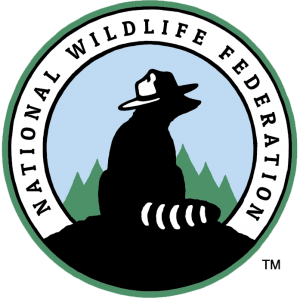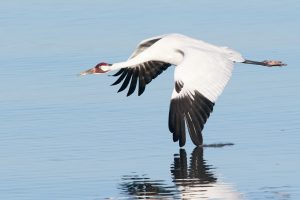Check here for the 2021 Senate Calendar
Check here for the 2021 House Calendar
Upcoming Congressional Hearings
- Senate Energy and Natural Resources Committee
- Tuesday, October 19 at 10am EST: “Full Committee Hearing to Consider Pending Nominations” including Mr. Willie L. Phillips, Jr. to be a Member of the Federal Energy Regulatory Commission, Mr. Brad J. Crabtree to be an Assistant Secretary of Energy (Fossil Energy and Carbon Management), and Charles F. Sams III to be Director of the National Park Service.
- Tuesday, October 19 at 2:30pm EST: Public Lands, Forests, & Mining Subcommittee Legislative See here for the full list of pending legislation.
- Thursday, October 21 at 10am EST: Hearing to consider pending legislation on topics including public lands, forests, and See here for the full list of bills.
- Senate Commerce, Science, and Transportation Committee
- Tuesday, October 19 at 2:30pm EST: Subcommittee on Oceans, Fisheries, Climate Change, and Manufacturing hearing on “Coast Guard Oversight.”
- Wednesday, October 20 at 10am EST: Nominations hearing, see here for the full list of nominees that the committee will consider.
- House Select Committee to Investigate the January 6th Attack
- Tuesday, October 19 at 7:30pm EST: “Markup on a report recommending the House cite Steve Bannon for criminal contempt of Congress.”
- Senate Environment and Public Works Committee
- Wednesday, October 20 at 10am EST: Hearing on “Evaluating the Federal Response to the Persistence and Impacts of PFAS Chemicals on our Environment”
- House Transportation and Infrastructure Committee
- Wednesday, October 20 at 10am EST: Subcommittee on Coast Guard and Maritime Transportation hearing on “Achieving Mission Balance: Positioning the Coast Guard for the Future.”
- House Energy and Commerce Committee
- Wednesday, October 20 at 10:30am EST: Subcommittee on Health hearing on “Enhancing Public Health: Legislation to Protect Children and Families.”
- Thursday, October 21 at 10:30am EST: Subcommittee on Energy hearing on “Offshore Wind, Onshore Benefits: Growing the Domestic Wind Energy Industry”
- House Natural Resources Committee
- Wednesday, October 20 at 11am EST: Subcommittee on Water, Oceans, and Wildlife hearing on “Colorado River Drought Conditions and Response Measures – Day Two”
- Thursday, October 21 at 10am EST: Subcommittee on Oversight and Investigations hearing on “Runit Dome and the U.S Nuclear Legacy in the Marshall Islands.”
- House Select Committee on the Climate Crisis
- Wednesday, October 20 at 2pm EST: Hearing on “Good For Business: Private Sector Perspectives on Climate Action.”
- Senate Judiciary Committee
- Wednesday, October 20 at 2:30pm EST: Subcommittee on The Constitution hearing on “Restoring the Voting Rights Act: Protecting the Native American and Alaska Native Vote.”
- Senate Indian Affairs Committee
- Wednesday, October 20 at 2:30pm EST: Roundtable discussion on “Investing in Economic Sovereignty: Leveraging Federal Financing for New and Sustained Development in Native Communities”
- House Foreign Affairs Committee
- Thursday, October 21 at 10am EST: Subcommittee: International Development, International Organizations and Global Corporate Social Impact hearing on “Preparing for COP26: United States Strategy to Combat Climate Change through International Development”
- House Judiciary Committee
- Thursday, October 21 at 10am EST: Hearing on “Oversight of the United States Department of Justice.”
- House Science, Space, and Technology Committee
- Thursday, October 21 at 10am EST: Subcommittee on Investigations and Oversight and Subcommittee on Energy hearing on “Judicious Spending to Enable Success of the Office of Nuclear Energy.”
Congressional News
- 2372, the Recovering Americas Wildlife Act, now has 29 Senate cosponsors. NWF will continue pushing for more cosponsors and advocating for this critical wildlife conservation bill.
Administrative News
- On Thursday, President Biden signed S. 1301, “which provides for authority to increase the debt limit by $480 billion, which is expected to be sufficient to allow the Federal Government to continue to meet its full commitments through early December.” The bill passed the Senate last week in a vote of 50-48.
- See here for White House resources, including a comprehensive list of Executive orders to address COVID, the climate crisis, and environmental justice, among other topics.
What’s Happening This Week
- This week, the House and Senate are both back from recess.
- The Senate is expected to focus on outstanding nominations this The Senate is also expected to vote on proceeding to consider the Freedom to Vote Act, which would advance critical reforms to ensure every American is able to exercise their right to vote, including by expanding early voting, making Election Day a federal holiday, and requiring states to have automatic voter registration.
- The Senate Appropriations Committee released 9 of its 12 appropriations bills today, Monday 18, for the fiscal year 2022.
- See the Committee’s website here for the full text of each bill. As a reminder, the House Appropriations Committee introduced and held markups on their versions earlier this year.
- The House is expected to focus on a number of suspension bills.
- As the White House and Congress continue work on the Build Back Better agenda, including the bipartisan infrastructure package and budget reconciliation, NWF continues to work to advance our priorities around these Please feel free to share NWF’s 117th Congress National Policy Agenda.



